OnePlus 8 Pro vs Samsung Galaxy S20 Plus: Why OnePlus wins
Our OnePlus 8 Pro vs Samsung Galaxy S20 Plus comparison shows why OnePlus' latest flagship is a better deal
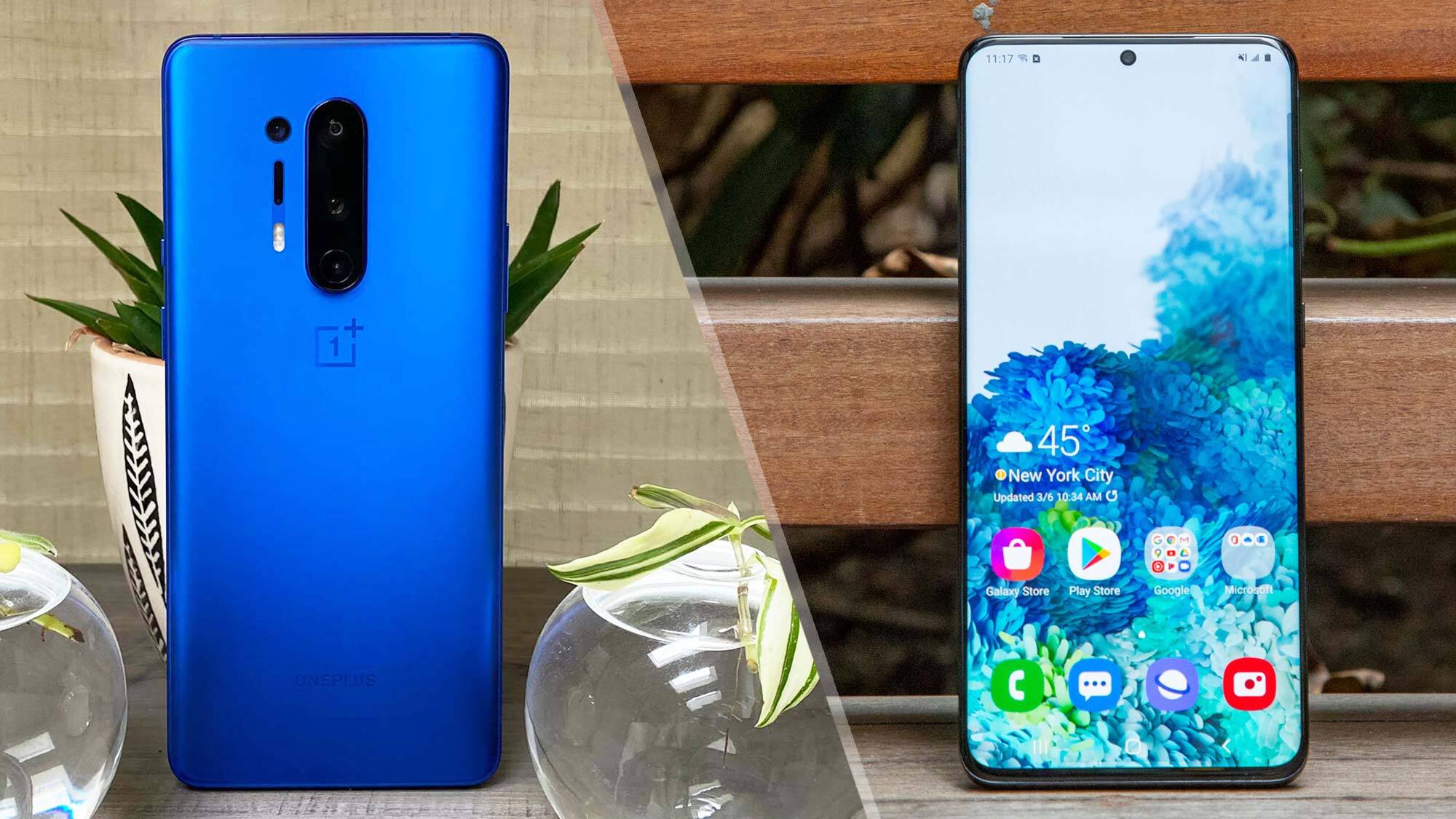
While the Samsung Galaxy S20 Plus is one of the best phones you can buy right now, it’s not a perfect smartphone. For starters, it’s very expensive at $1,199, and its battery life, while solid, could stand to be a little better. It’s also just not a particularly exciting looking device.
Enter the OnePlus 8 Pro. Starting at $899, OnePlus’ latest flagship is properly expensive by the company’s own standards, yet a steal compared to the S20 Plus. The OnePlus 8 Pro offers a larger display and faster wireless charging, while equaling the S20 Plus in terms of power, battery capacity and even the number of camera lenses on the back. And yet, it costs $300 less than the middle child of the Galaxy S20 range.
- The best unlocked phones at every price
- Samsung Galaxy Note 20 Ultra vs OnePlus 8 Pro: Which phone wins?
Still, specs on paper only tell us so much. Our OnePlus 8 Pro vs Samsung Galaxy S20 Plus comparison gets to the bottom of which device should be considered the best Android phone and more deserving of your hard-earned cash. And for deeper looks at both phones, check out our OnePlus 8 Pro review and Samsung Galaxy S20 Plus review, as well as our impressions of the cheaper and smaller OnePlus 8.
OnePlus 8 Pro vs Galaxy S20 Plus: Pricing and carriers
While the $899 OnePlus 8 Pro is more expensive than the $1,1999 Galaxy S20 Plus, the S20 Plus is easier to buy. Every major carrier sells it, while those interested in the OnePlus 8 Pro will have to pick up an unlocked model from either OnePlus’ website or Amazon and only then can they take it to a carrier of their choice.
Thankfully, OnePlus still offers no-interest installment pricing despite the fact you can’t buy the OnePlus 8 Pro through a carrier. While the $699 OnePlus 8 will be sold in Verizon and T-Mobile stores, the Pro variant will be limited to online, off-contract sales.
Both the OnePlus 8 Pro and Galaxy S20 Plus come with 128GB of onboard storage. If you want to upgrade that — to either 256GB on the OnePlus 8 Pro or 512GB on the S20 Plus — you’ll have to spend an extra $100 and $150, respectively. Do note, however, that while the S20 Plus features a microSD slot that’ll let you easily expand capacity whenever you feel like it, the OnePlus 8 Pro offers no such luxury. In other words, OnePlus buyers ought to choose their desired storage configuration wisely.
Ultimately, the OnePlus 8 Pro wins this round unsurprisingly thanks to its lower price — though not by as much as you might expect, given Samsung’s carrier availability advantage.
Get instant access to breaking news, the hottest reviews, great deals and helpful tips.
Winner: OnePlus 8 Pro
OnePlus 8 Pro vs Galaxy S20 Plus: Specs
| Model | OnePlus 8 Pro | Samsung Galaxy S20 Plus |
|---|---|---|
| Price | $899/$999 | $1,199/$1,349 |
| Display | 6.78-inch AMOLED (3168x1440) | 6.7-inch AMOLED (3200x1440) |
| Max refresh rate | 120Hz | 120Hz |
| CPU | Snapdragon 865 | Snapdragon 865 |
| RAM | 8GB/12GB | 12GB |
| Storage | 128GB/256GB; No microSD expandability | 128GB/512GB; Supports microSD expandability |
| Rear cameras | Quad-lens: 48MP wide (ƒ/1.78); 48MP ultrawide (ƒ/2.2); 8MP telephoto (ƒ/2.44); 5MP color filter (ƒ/2.4) | Quad-lens: 12MP wide (ƒ/1.8); 12MP ultrawide (ƒ/2.2); 64MP telephoto (ƒ/2.0); VGA time-of-flight sensor |
| Front camera | 16MP (ƒ/2.45) | 10MP (ƒ/2.2) |
| Battery size | 4,510 mAh | 4,500 mAh |
| Charging | Warp Charge 30T wired; 30-watt wireless | 25-watt wired; 15-watt wireless |
| 5G connectivity | Sub 6-GHz | Sub 6-GHz and mmWave |
| Water resistance | IP68 | IP68 |
| Weight | 6.50 x 2.92 x 0.33 inches | 6.37 x 2.9 x 0.3 inches |
| Weight | 7.01 ounces | 6.56 ounces |
OnePlus 8 Pro vs Samsung Galaxy S20 Plus: Design
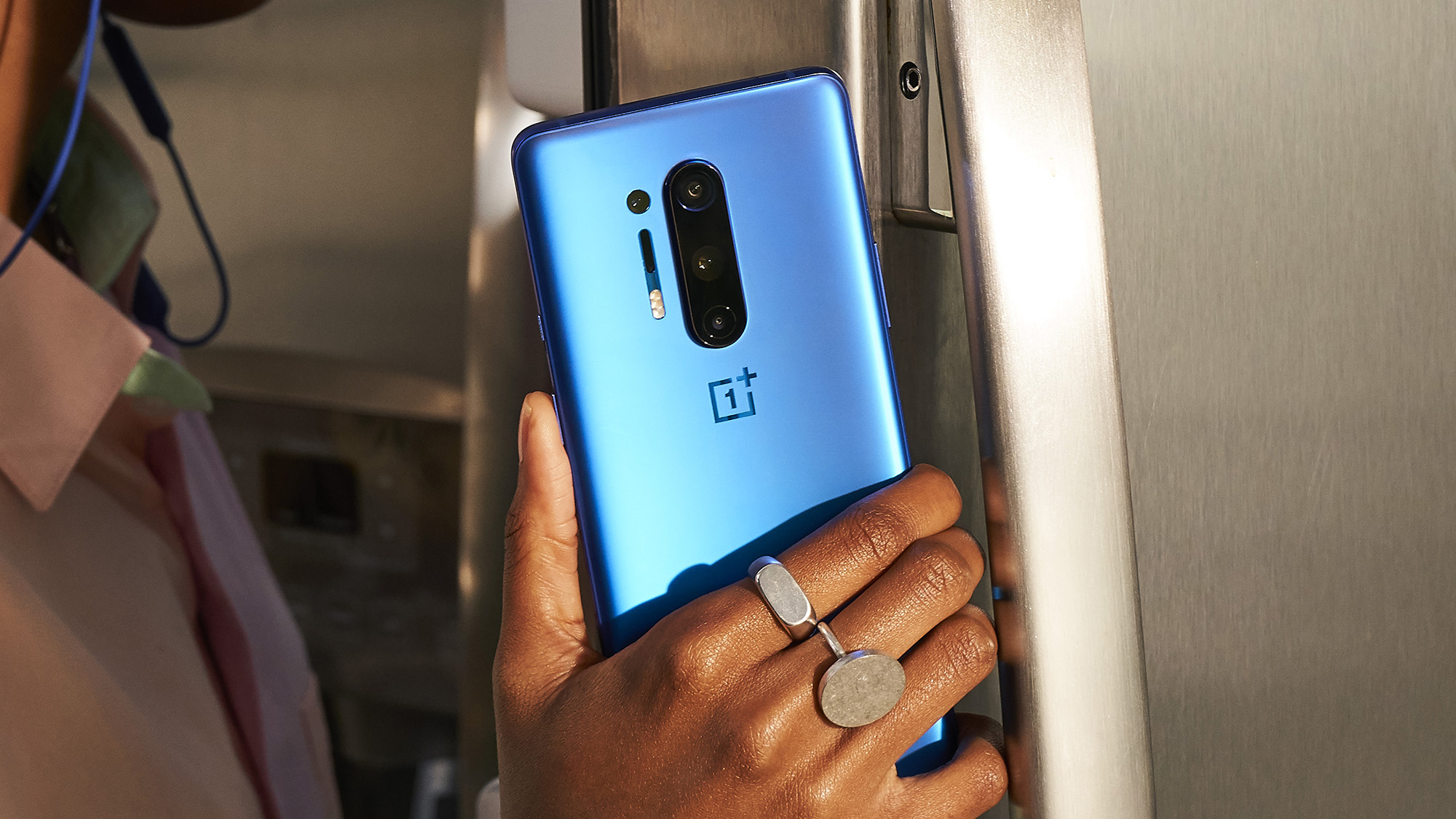
From the front, it must be said that the OnePlus 8 Pro and Samsung Galaxy S20 Plus actually look quite similar. But then, that’s the consequence of going for the no-bezel, hole-punch camera look. In trimming everything down to the screen, these companies have pretty much forfeited any discernible design cues that otherwise would have made their devices at all memorable.
That’s not to say there aren’t some differentiating qualities, if you know where to look. The OnePlus 8 Pro has OnePlus’ traditional alert slider, which is a rare feature on Android phones. It also has a pleasing matte-etched glass back and comes in two striking shades —Ultramarine Blue and Glacial Green — in addition to the obligatory Onyx Black. They’re more exciting than the Cloud Blue, Cosmic Gray and Cosmic Black the S20 Plus can be had in.
The OnePlus 8 Pro is taller, equally as wide and a hair thicker than the Galaxy S20 Plus, while also tipping the scales at half an ounce more. Therefore, you could argue the S20 Plus is the more pocketable device, though not by a whole lot. The OnePlus 8 Pro also has the problem of very steeply-curved sides that lack adequate palm rejection software, resulting in many unintentional taps. This wasn’t something we encountered while testing the S20 Plus, which allows Samsung to win some points back in its favor — even though it’s not our design champion.
Winner: OnePlus 8 Pro
OnePlus 8 Pro vs Samsung Galaxy S20 Plus: Display
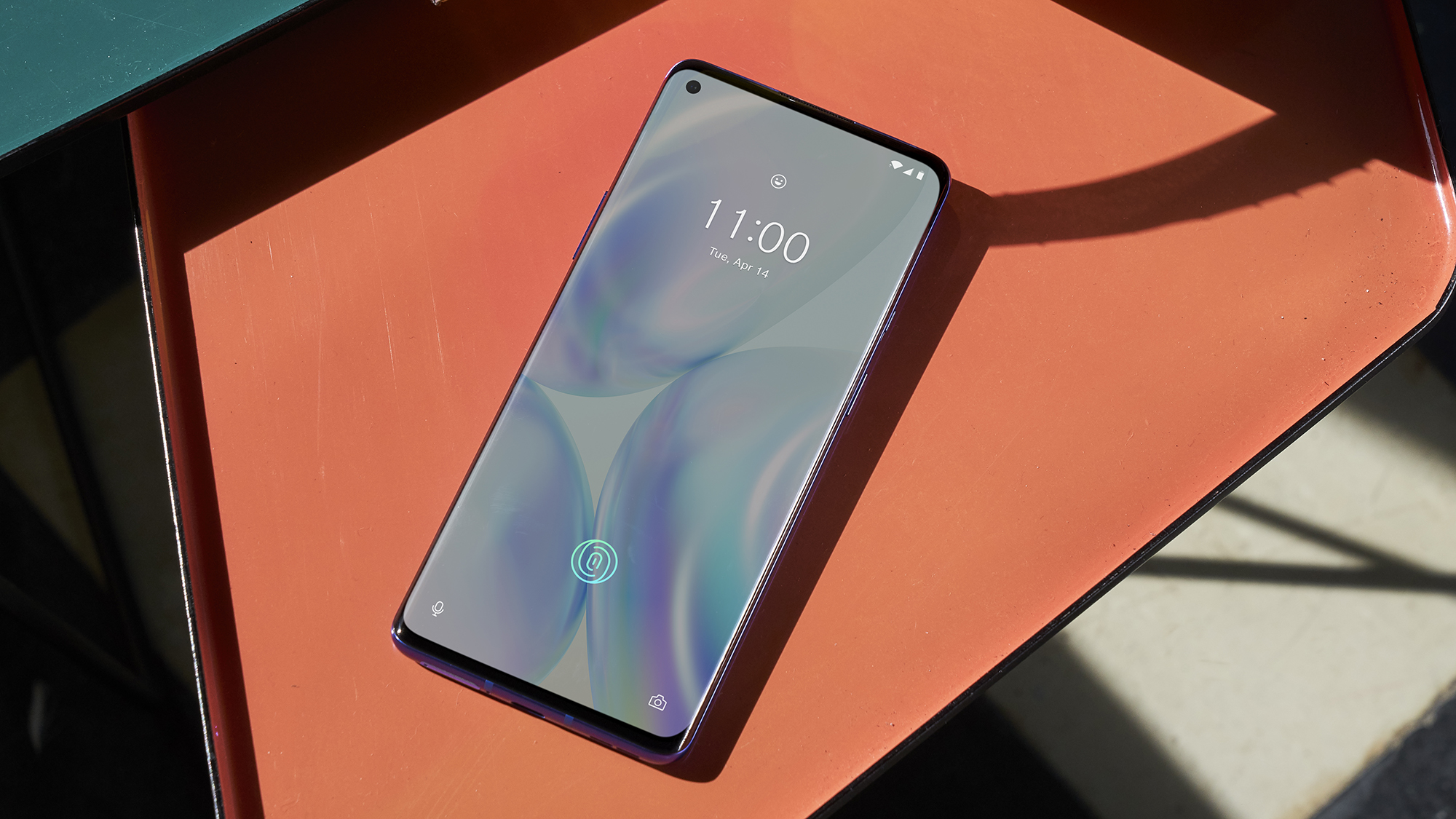
It takes a trained eye to tell the differences between the AMOLED panels OnePlus and Samsung have fitted to their latest phones. Both have quad-HD resolutions and 120 Hz refresh rates, and they’re even similar in size too. The OnePlus 8 Pro’s screen measures 6.78 inches from corner to corner, while the S20 Plus’ is that tiniest bit smaller, at 6.7 inches.
However, the way in which these panels have been calibrated highlight some discrepancies. Out of the box, the OnePlus 8 Pro opts for more realistic, toned-down hues, as evidenced by its 165% coverage of the sRGB color space. The Galaxy S20 Plus shatters that result at 224%, though it’s important to stress that where color gamut is concerned, more isn’t necessarily better — rather, it’s just an indication of intensity. Furthermore, both devices offer a selection of color profiles that allow you to tune things to your liking.
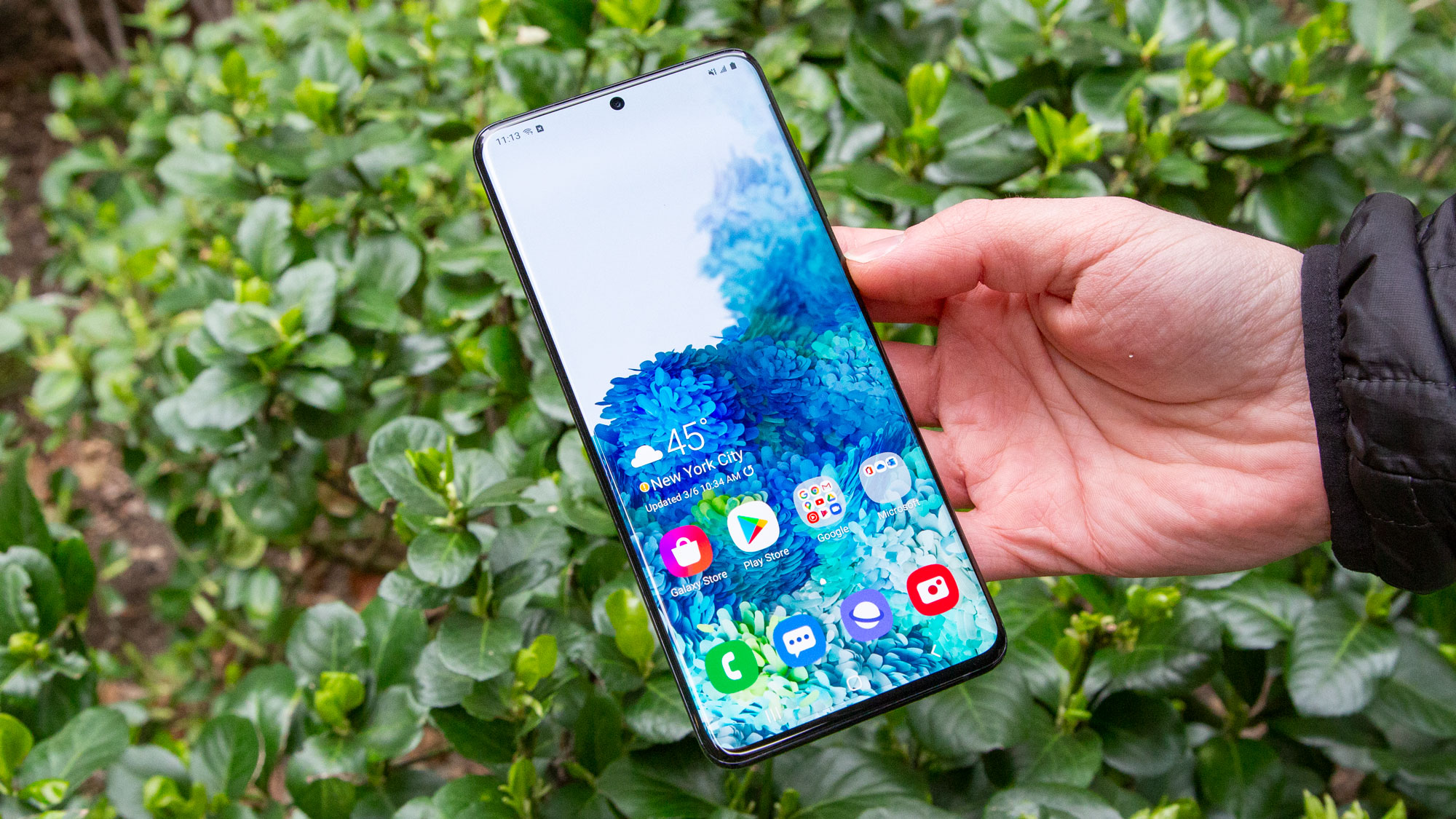
The OnePlus 8 Pro does, however, have a penchant for more realistic color, judging by its Delta-E score of 0.26. The S20 Plus managed 0.36 under our light meter, and numbers closer to zero are better in this test — hinting at a slight edge to OnePlus’ hardware here.
Then there’s the comparison of refresh rates. Both devices offer a peak of 120Hz if you choose to use that mode, however only the OnePlus 8 Pro allows the user to run their phone at 120 Hz and full quad-HD resolution at the same time. Samsung’s software forces you to live with full-HD scaling if you opt for the 120 Hz setting. That bodes better for battery life, certainly — though it means you can’t really experience games, movies and TV at their best on that screen.
OnePlus and Samsung cite peak brightness in the neighborhood of 1,300 and 1,200 nits respectively, meaning the viewing experience on both devices should suffice outdoors on a sunny day. Ultimately, the OnePlus 8 Pro gets the nod here for its slightly-better calibration and the ability to select both the maximum refresh rate and resolution, if you like.
Winner: OnePlus 8 Pro
OnePlus 8 Pro vs Samsung Galaxy S20 Plus: Cameras
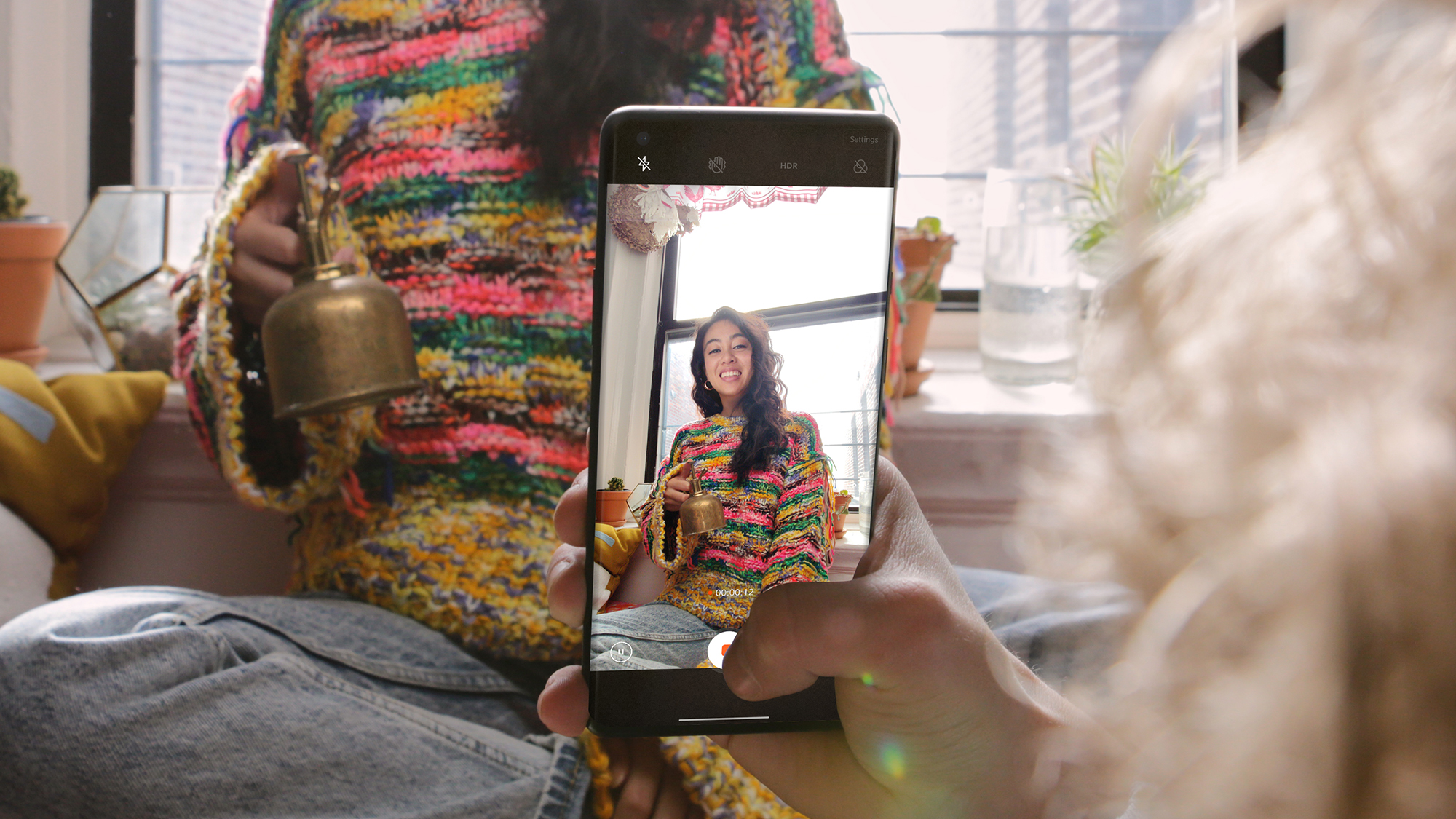
While the OnePlus 8 Pro and Samsung Galaxy S20 Plus share an equal number of lenses on the back, both companies have taken different approaches with respect to their devices’ photography hardware.
The OnePlus 8 packs two 48-megapixel sensors — one serving as the primary wide-angle shooter, and the other behind an ultrawide lens. Then there’s an 8-MP telephoto with 3x optical zoom alongside a 5-MP “color filter” camera to round things out. On the front, there’s a 16-MP camera for selfies.
The S20 Plus has a 12-MP wide lens front and center, flanked by a 64-MP telephoto shooter capable of 3x lossless zoom, albeit via sensor cropping — not an optical advantage. There’s also a 12-MP ultrawide lens and a VGA time-of-flight sensor designed to enhance depth effects. A 10-MP sensor serves selfie duties on the front.
The scene above of a creek in an idyllic park scene illustrates both companies’ philosophies with respect to computational photography. The Galaxy S20 Plus really punches up those greens and the blue sky, while more brightly exposing the shadows cast by the trees to the left. The tone of the creek itself is also totally different than in the OnePlus 8 Pro’s rendition, which opted for less saturated hues. Overall, OnePlus’ software appears to have gone for something more realistic here, though on the flip side, I could easily envision a user preferring to share the Galaxy S20’s version of things instead.
Moving to a picture of a dugout on a baseball field, the S20 Plus’ result simply pops more, with more defined shadows and edges, warmer colors around the mural and grass, and sharper details. The OnePlus 8 Pro seems to have a predisposition toward cooler images than Samsung’s and Apple’s cameras, and that’s something certainly illustrated here.
That said, OnePlus is able to claw back some favor here thanks to the 8 Pro’s 16-MP front-facing camera, which churned out a much better selfie of Tom’s Guide’s Mark Spoonauer compared to the S20 Plus. Samsung’s curious predisposition toward unnatural, off-puttingly smooth portraits continues with its latest flagships, and it makes the OnePlus 8 Pro’s rendition look much better than it actually is in isolation.


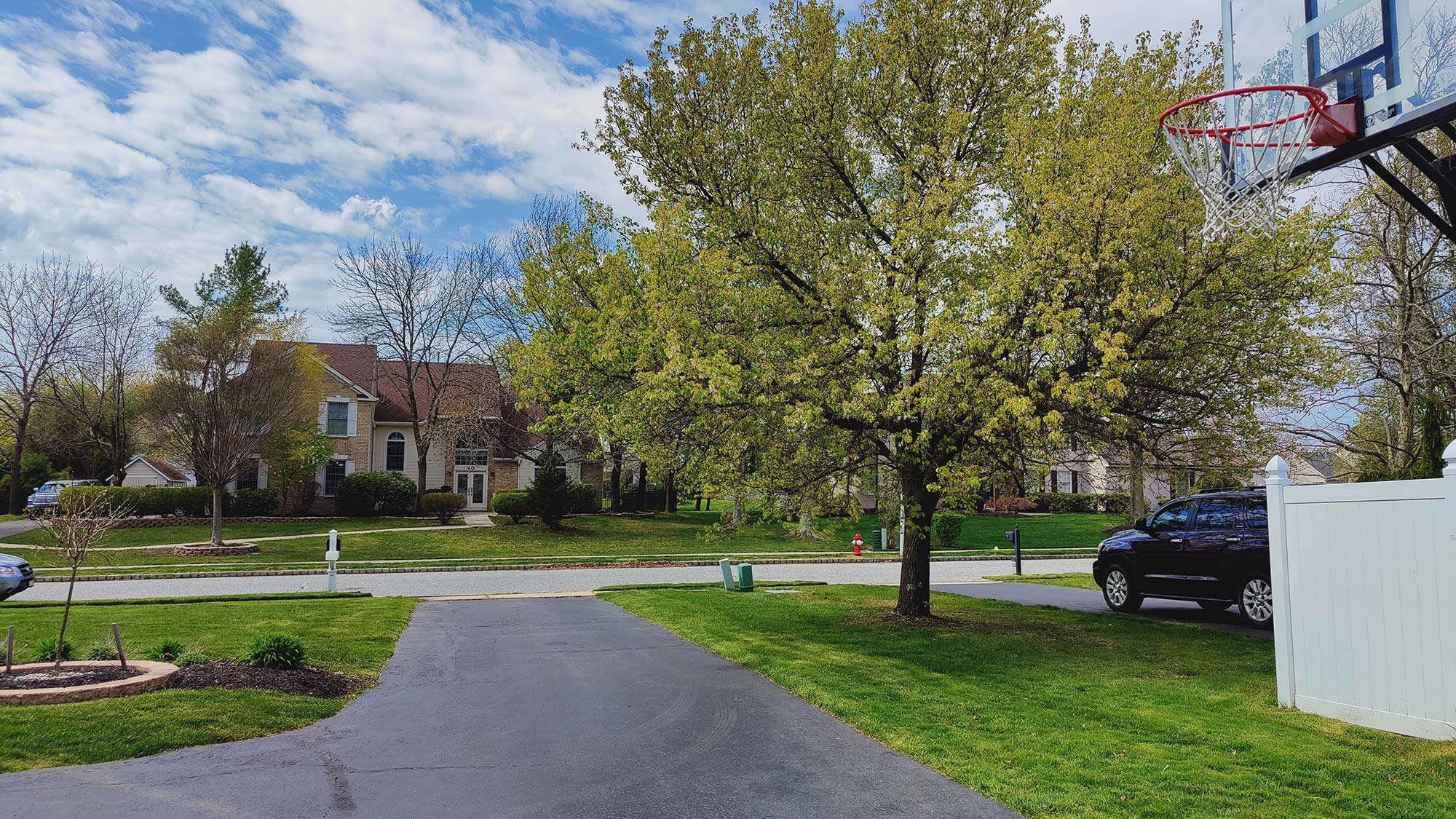
And what of the unusual color filter optic on the OnePlus 8 Pro? Theoretically, it’s supposed to produce images with better effects than software would provide. However, looking at the example given above of what the phone’s Photochrom filter can do, we’re not sure OnePlus should have bothered with it. The result is definitely eerie; Mark likens it to a nuclear winter and I’m inclined to agree.
Given the choice between the color filter lens as a fourth camera and the Galaxy S20 Plus’ depth sensor, the latter seems more useful, at least in so far as you’re guaranteed to get some use out of it when shooting Live Focus photos with bokeh backgrounds.
Ultimately, the OnePlus 8 Pro’s cameras are solid. But the Galaxy S20 Plus’ are just a little better, with post-processing that generally helps photos rather than hurting them — so long as you’re not taking selfies, anyway.
Winner: Samsung Galaxy S20 Plus
OnePlus 8 Pro vs Samsung Galaxy S20 Plus: Performance
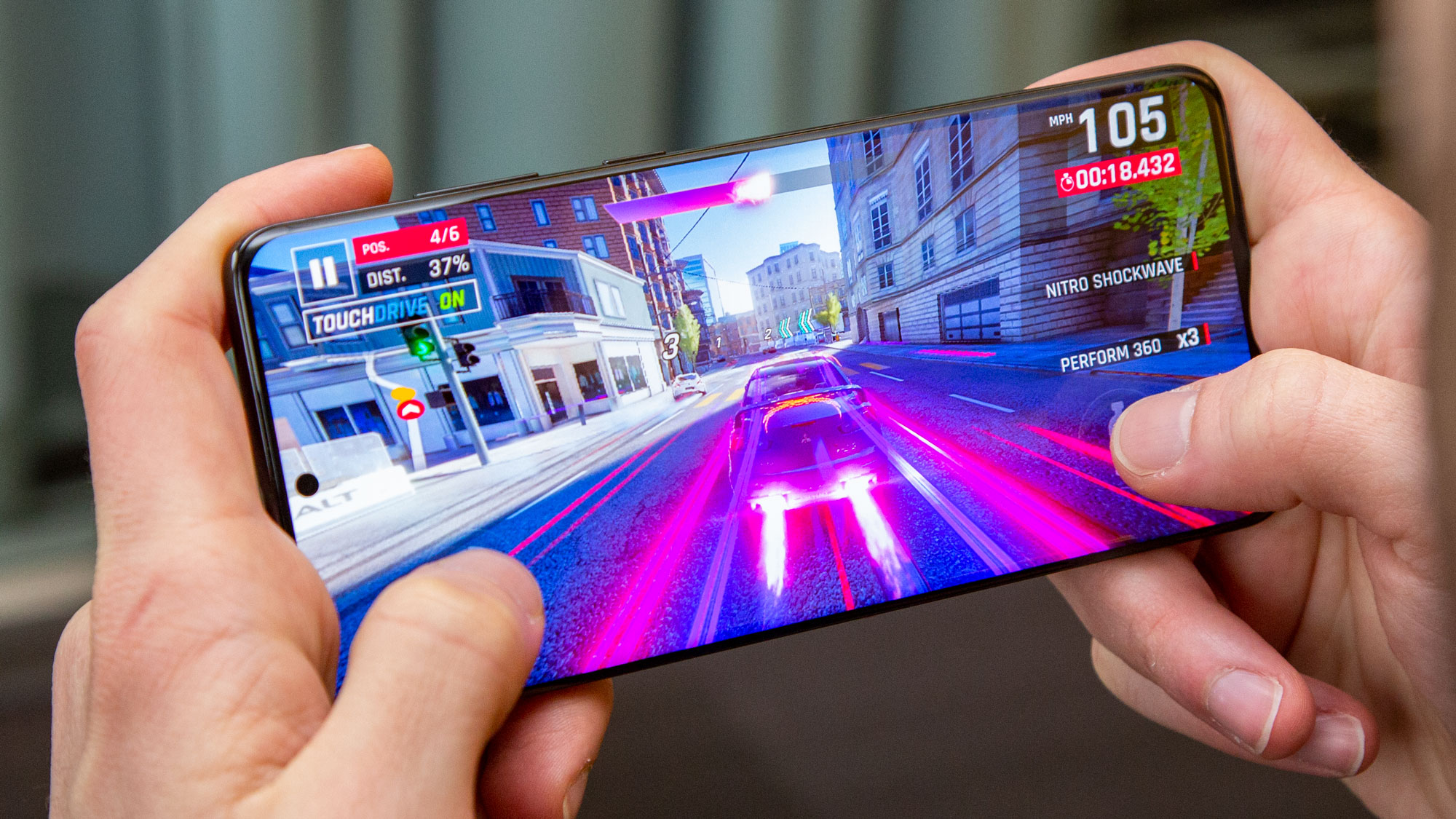
No matter whether you choose the OnePlus 8 Pro or the Galaxy S20 Plus, you’re getting Qualcomm’s latest and greatest processor — the Snapdragon 865 — with a minimum of 8GB of RAM in the OnePlus 8 Pro, or a whopping 12GB in the S20 Plus.
Both of these flagships feel equally smooth in everyday use, but the benchmarks show a slight edge in favor of the OnePlus 8 Pro in terms of overall system performance. The OnePlus 8 Pro’s multicore Geekbench 5 result of 3,379 is a few ticks quicker than the S20 Plus’ 3,076 points.
On the other hand, the S20 Plus finished GFXBench’s Aztec Ruins Vulkan test for high-tier devices at 21 frames per second — compared to 20 fps for the OnePlus 8 Pro. And in our real-world video-editing test, where a 4K clip is transcoded to 1080p using the Adobe Premiere Rush app, the OnePlus 8 Pro took some 30 more seconds to finish the job — 1 minute and 43 seconds, versus 1 minute and 14 seconds.
Overall, these are two evenly-matched phones here, trading blows in different benchmarks — leaving this one in a tie.
Winner: Tie
OnePlus 8 Pro vs Samsung Galaxy S20 Plus: 5G connectivity
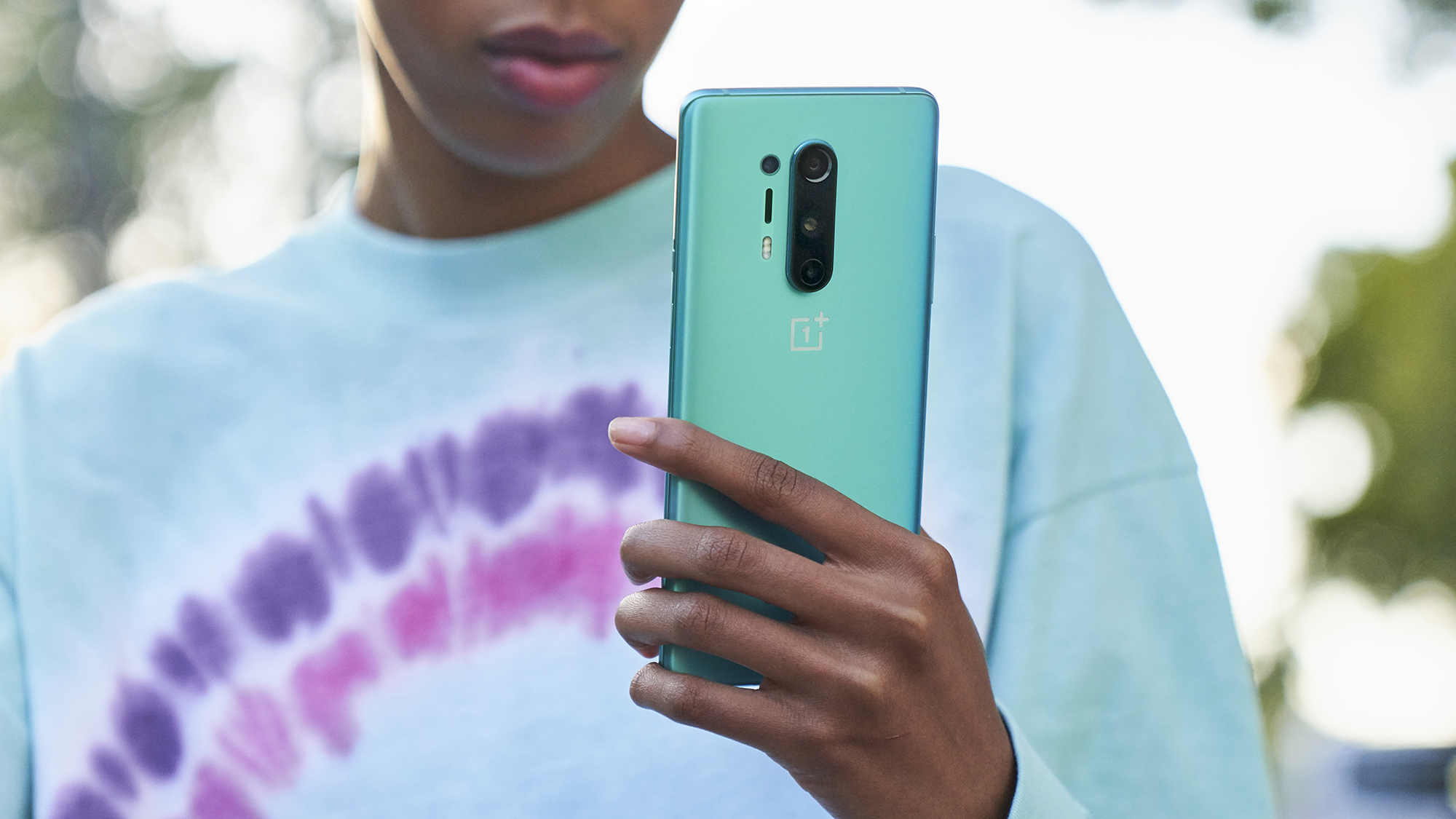
The Galaxy S20 Plus boasts compatibility for both forms of 5G that carriers are rolling out: sub-6GHz and millimeter-wave (mmWave). The former delivers wider coverage at slower speeds, while the latter provides astronomically fast data over short distances.
The OnePlus 8 Pro, however, only supports sub-6GHz 5G, even though its Qualcomm X55 modem technically supports mmWave as well. Because the OnePlus 8 Pro isn’t sold through American carriers — and because the carriers are saving their mmWave networks for devices they exclusively sell — OnePlus’ best phone will miss out on the fastest data speeds. (If you want a OnePlus phone that works on Verizon’s 5G network, get the OnePlus 8 sold through the carrier for $799.)
That said, we don’t consider the lack of mmWave 5G on the OnePlus 8 Pro to be a huge loss. Millimeter-wave 5G is only accessible outside, in dense urban environments (as in, the kind you’re not allowed to be in right now) and even then, you need unimpeded line-of-sight to a mmWave small cell to hold a signal. Given mmWave’s limited appeal, we don’t think you should hold off from buying a OnePlus 8 Pro if you have your heart set on it just because it doesn’t support 5G in all its deployments — though it is something buyers should be mindful of, nevertheless.
Winner: Samsung Galaxy S20 Plus
OnePlus 8 Pro vs Samsung Galaxy S20 Plus: Battery and charging
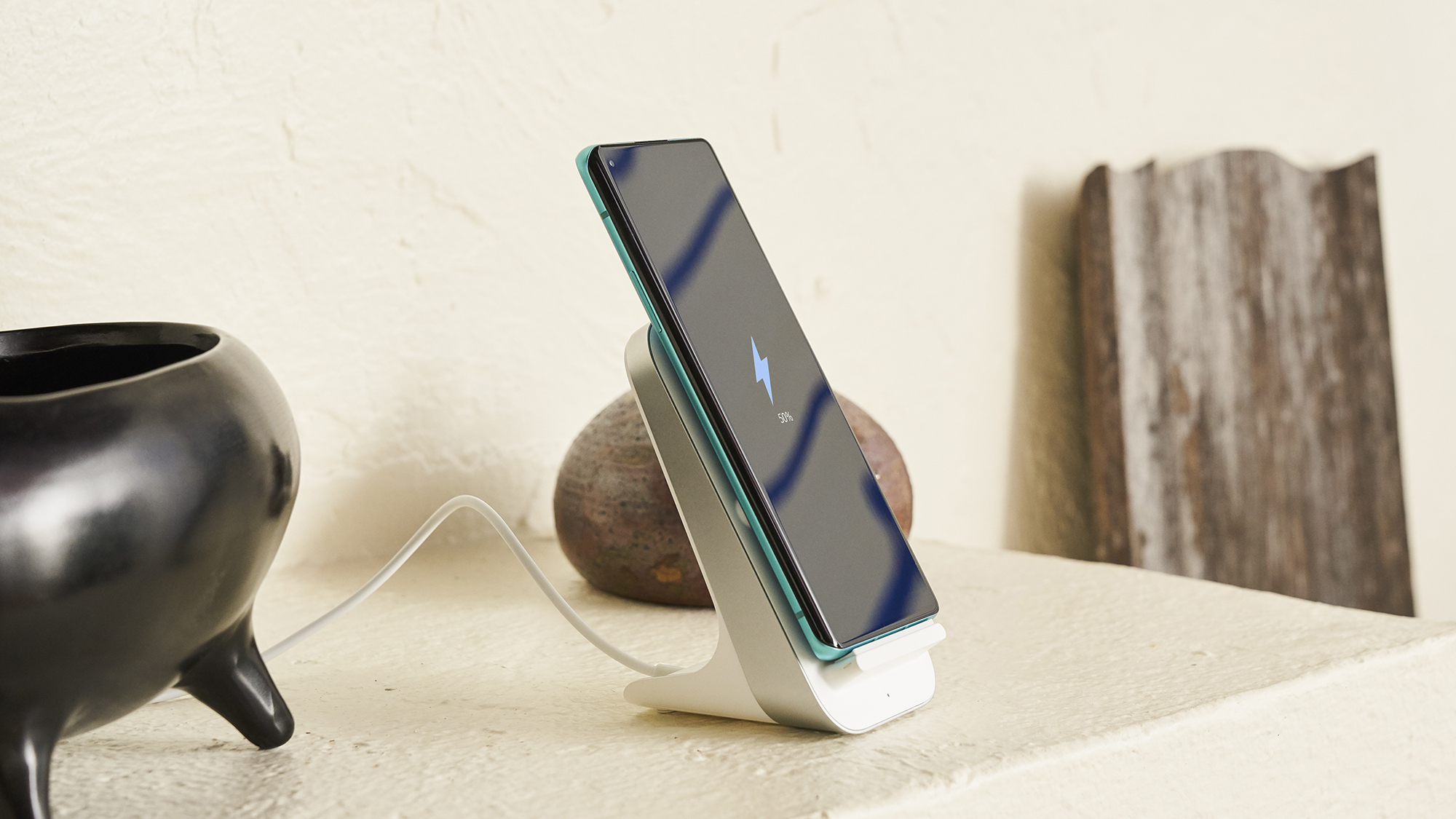
The OnePlus 8 Pro and Samsung Galaxy S20 Plus feature nearly identically-sized batteries: 4,510 mAh in the case of the OnePlus handset, and 4,500 mAh for the Samsung device.
However, the OnePlus 8 Pro lasted longer in Tom’s Guide’s custom battery test, and it charges back up quicker than the S20 Plus. With both phones’ screens set to 60 Hz refresh rates, the OnePlus 8 Pro endured 11 hours and 5 minutes of web surfing over T-Mobile data connection, compared to 10 hours and 31 minutes for the S20 Plus.
The OnePlus 8 Pro also tops up quicker, reaching 63% after 30 minutes using the stock wired charger, compared to 55% for the S20 Plus in tandem with its packed-in adapter.
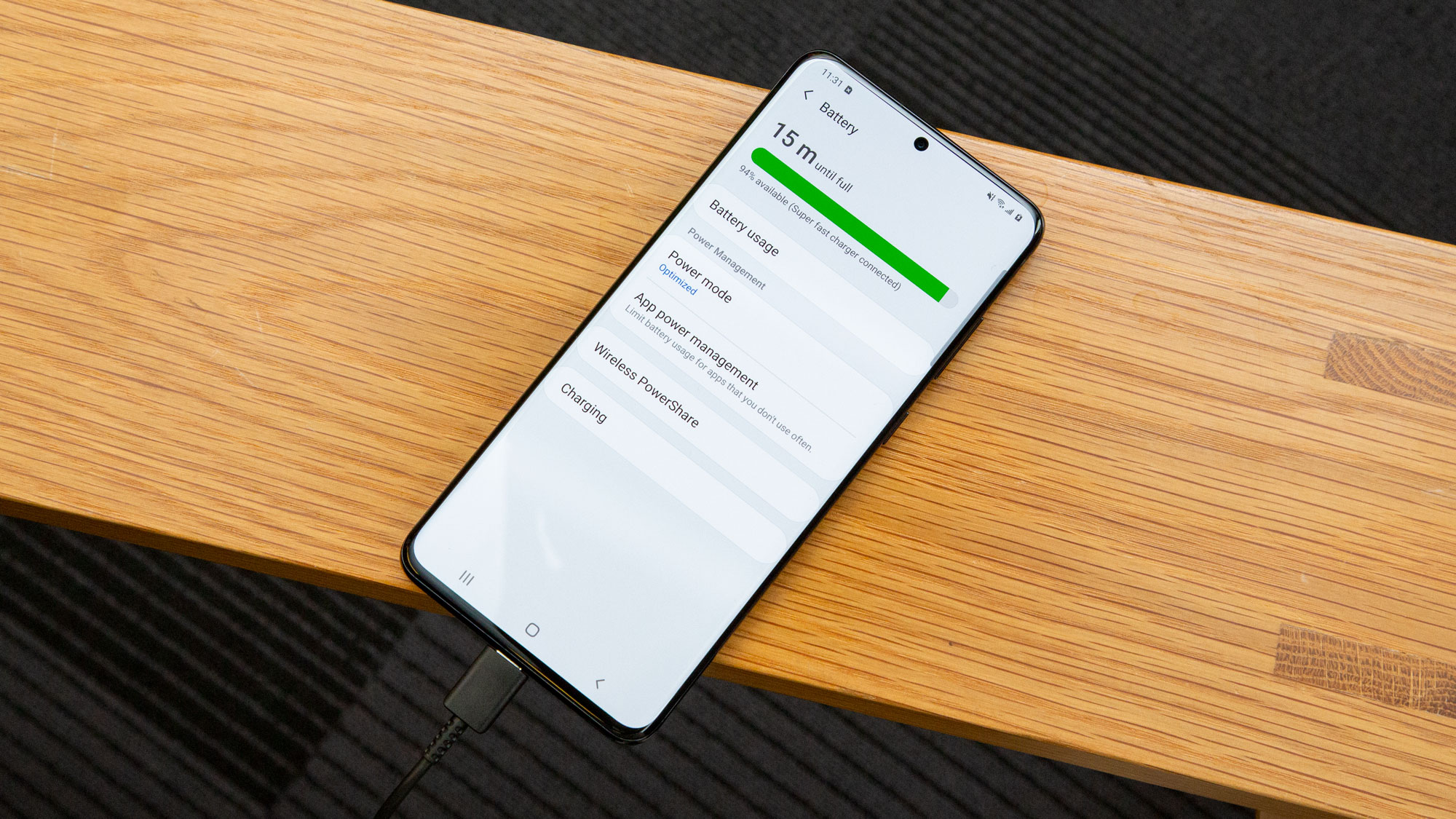
If that’s not good enough, OnePlus also offers a $65 wireless charger that also pushes 30 watts of power just like its wired system, allowing the OnePlus 8 Pro to reach 55% over wireless induction in the same half-hour chunk of time. That pace is unheard of for wireless charging, and sets a new benchmark for Samsung to try and match with its upcoming Galaxy Note 20.
Speaking of wireless charging, it must be said that both of these phones can also recharge other devices — like a pair of earbuds or a smartwatch — wirelessly in reverse. However, the OnePlus 8 Pro’s better longevity and quicker charging speed — whether using wires or not — gives it the easy win in this round.
Winner: OnePlus 8 Pro
OnePlus 8 Pro vs Samsung Galaxy S20 Plus: Software
OnePlus’ Oxygen OS has long been one of our favorite implementations of Android, thanks to its thoughtful feature set and elegant design. This continues with the OnePlus 8 Pro, which features an improved system-wide Dark Mode that touches more of the interface and even some third-party apps as well.
Like its predecessors, the OnePlus 8 Pro relies on an optical fingerprint sensor embedded into the display for authentication. Theoretically, this system is a bit easier to fool than the ultrasonic solution Samsung has turned to for the Galaxy S20 line, but OnePlus’s scanners are easier to use in our experience, with less potential for false negatives.
The Galaxy S20 Plus comes loaded with Samsung’s OneUI front end, which is markedly different from both stock Android and what OnePlus 8 Pro users will encounter in Oxygen OS. And although it’s rich with features, it’s not quite as pretty or as swift to navigate as OnePlus’ experience.
Winner: OnePlus 8 Pro
What about the OnePlus Nord?
If specs are less of a concern for you, but you still want some of OnePlus' trademark features, like a fast-refresh display, quad cameras at the back and super-fast charging, the OnePlus Nord is worth considering. The Nord starts at £379, making it considerably less expensive than either of the devices in this face-off. Its Snapdragon 765G chipset isn't as powerful as the 865 silicon in the OnePlus 8 or Galaxy S20 Plus, but it's certainly snappy enough for the majority of users.
The problem is, of course, that the Nord isn't available in all countries. OnePlus has held off bringing its new entry-level device to North America, meaning the only way for anyone west of the Atlantic to snap one up is via importing. OnePlus says it'll soon bring a cheaper, Nord-like phone over to American shores before the end of the year, and it'll probably cost under $500. We look forward to seeing what the company cooks up, as it could make for a similarly-compelling alternative to these two pricey flagships.
OnePlus 8 Pro vs Samsung Galaxy S20 Plus: Verdict
As good as the Galaxy S20 Plus is, the OnePlus 8 Pro wins because it matches or betters so many of what Samsung’s been able to achieve in the S20 Plus, but for less money. $300 less, to be exact.
| Model | OnePlus 8 Pro | Samsung Galaxy S20 Plus |
|---|---|---|
| Price (10) | 8 | 6 |
| Design (15) | 13 | 11 |
| Display (10) | 10 | 9 |
| Camera (20) | 15 | 17 |
| Performance (15) | 14 | 14 |
| Connectivity (5) | 3 | 5 |
| Battery (15) | 14 | 12 |
| Software (10) | 10 | 8 |
| Total (100) | 87 | 82 |
In fact, the only areas in which you could argue the S20 Plus has a clear advantage include its camera, 5G connectivity and carrier availability. And while shutterbugs will find more to like with a Galaxy in their pockets, 5G has yet to deliver on its speed promises, and those who really want a OnePlus 8 Pro can still bring it to any carrier they like — they’ll just have to buy it from Amazon or OnePlus first.
Otherwise, the OnePlus 8 Pro’s battery life, display and software advantages, coupled with the fact it’s much more affordable, make it the Galaxy S20 killer you’ve been waiting for.
Adam Ismail is a staff writer at Jalopnik and previously worked on Tom's Guide covering smartphones, car tech and gaming. His love for all things mobile began with the original Motorola Droid; since then he’s owned a variety of Android and iOS-powered handsets, refusing to stay loyal to one platform. His work has also appeared on Digital Trends and GTPlanet. When he’s not fiddling with the latest devices, he’s at an indie pop show, recording a podcast or playing Sega Dreamcast.
